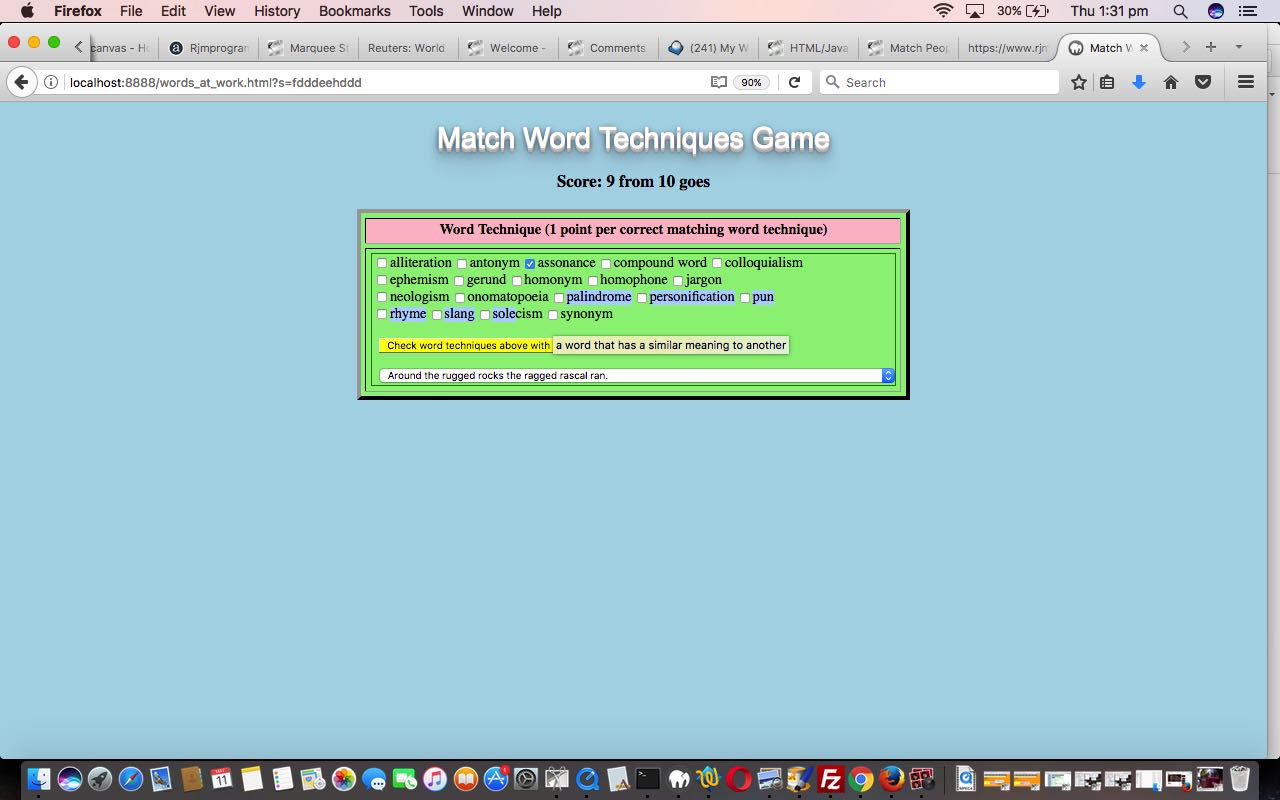We’ve based a new ESL word game we want to call “Match Word Techniques Game”, designed for very advanced English students (even native speakers, perhaps) on a previous “one to many” arrangement, where …
- the “one” is a phrase or sentence exemplifying …
- the “many” is a word technique or more than one
… like we designed with our ESL word game described in HTML/Javascript Jobs Match Game Tutorial. It’s “many” checkbox and “one” select element design still holds true today.
What do we mean by “Word Techniques”? That is where we’d like to thank our inspirational resource, the book Text Types in English by Mark Anderson and Kathy Anderson (ISBN: 0-7329-4584-4) (p. 72-74) lists the following word techniques that can occur in English phrases and/or sentences (appearing in the select element “dropdown”) …
| Word Technique | Description |
|---|---|
| alliteration | the use of the same letter or sound in two or more words that are close together. It is indicated by repeated consonants. |
| antonym | a word that has the opposite meaning to another |
| assonance | the use of the same letter or sound in words that are close together. It is indicated by repeated vowels or vowel sounds. |
| compound word | a word made up by putting two or more existing words together |
| colloquialism | a word used in everyday writing or speech, as opposed to formal or literary texts |
| ephemism | a word or phrase used to communicate an idea in a polite or less direct way |
| gerund | a verb that functions as a noun |
| homonym | a word with the same spelling as another, but with a different meaning |
| homophone | a word that sounds the same as another but has a different meaning |
| jargon | the use of words that are particular to a specific subject or occupation |
| neologism | a new word or expression in a language |
| onomatopoeia | the use of words that sound like the action they represent |
| palindrome | a word or phrase that reads the same backwards as forwards |
| personification | the use of words, usually verbs, that are associated with people to describe non-human things |
| pun | the use of one word to suggest different meanings |
| rhyme | the sound of two or more words matching |
| slang | words that are not accepted in ‘formal’ English |
| solecism | the mispronunciation of a word that relates to technical language, or jargon |
| synonym | a word that has a similar meaning to another |
As you can see with many word technique concepts above, some of the answers will need advanced English skills, which you can try with today’s live run link, the HTML and Javascript code for which you can download words_at_work.html and see how it was arrived at via this link.
If this was interesting you may be interested in this too.



